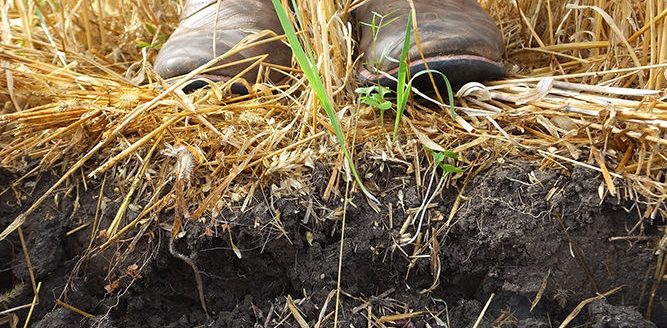Funding available to control erosion on cropland
Farmers know when they lose soil, they lose profits. Preventing soil erosion is good for the environment and for producers’ bottom line.
The USDA Natural Resources Conservation Service has funding available to help Nebraska’s farmers control erosion on their cropland. This funding is available through a special Ephemeral Gully Control Initiative under the Environmental Quality Incentives Program. Eligible producers have until July 20 to apply.
Controlling erosion is especially important for recipients of USDA program benefits—like federal crop insurance subsidies and conservation program payments. USDA program participants are required to control erosion on all cropland determined to be highly erodible. The funding available through this special initiative can help farmers meet that requirement.
Nebraska State Conservationist Craig Derickson said, “Conservation practices such as cover crops and grassed waterways are good solutions for controlling ephemeral gullies, which is required by conservation compliance provisions. Conservation buffers are effective in controlling erosion from both water and wind and help protect the soil, improve air and water quality, enhance fish and wildlife habitat, and beautify the landscape.”
According to NRCS, over the last couple of decades, there has been a continual decrease in grassed waterways due largely to the adoption of large-scale farming equipment and conservation cropping systems that rely heavily on herbicides to control weeds. On some fields, this has led to increased erosion and ephemeral gullies.
Derickson said, “Ephemeral gullies are those rough spots where water concentrates and causes soil to wash away, creating small ditches. While the damage to cropland appears to be small, if not controlled, the negative impacts like loss of inputs, decreased soil health and yields can be significant. Plus, it can cause farmers to be out of compliance with USDA’s Food Security Act requirements.”
For more information, and to apply for funding through this special initiative, visit NRCS at a local USDA Service Center before July 20.


